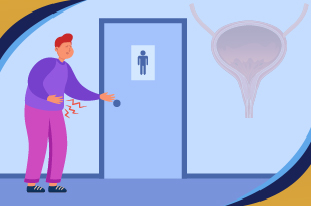Intrusive thoughts are a type of thought that you don’t have control over. These can be thoughts, pictures of past events that come into your mind. These can be distressing or strange thoughts that can disturb the current mental state of a person, but when they are persistent, they become a disorder.
What are the intrusive thoughts?
Intrusive thoughts are unwanted and irrelevant images, impulses, or thoughts that enter your mind unexpectedly and cause distress. These can be negative or positive, strange, disturbing, and can be related to violence, sexual acts, fear, or anxiety. Although everyone experiences them at some point or another, they become problematic. If intrusive thoughts are persistent, they can cause anxiety or disturb the daily functioning of life, potentially indicating an underlying mental health condition like anxiety, depression, or OCD. These are the last things you think about as they can be:
- Fighting
- Violent or sexual
- Related to phobia
- Shameful
- Disgust
- Blasphemous if the person is religious
It is also possible that some thoughts might not fall into the above category; it can be about anything, or an image that pops into your mind.
In most cases, these thoughts do not have meaning in them, as long as you acknowledge them, you might miss the chance to act on them. Intrusive thoughts are not harmful. But they are happening often and disturb your daily life; it’s good to talk to a psychiatrist. The intrusive thoughts’ meaning is:
Unwanted or intrusive thoughts are defined in a way that they work and feel, not only what they are about.
Read More: Coping Mechanisms For Depression: Practical Strategies To Help You Navigate
It’s common to have intrusive thoughts
These thoughts happen to almost every person in life, one time or another. A study in 2014 illustrates that about 24% of people in the world have intrusive thoughts. Among them, doubts or worries about the tasks are most common; however, religious-related or sexual thoughts are the least reported.
Although these thoughts are nothing to worry about, they can start interfering with your daily life and cause problems.
Causes of intrusive thoughts
There is no visible reason for what causes intrusive thoughts. They can be random because your brain thinks all the time. So, everyone can have interrupted thoughts for no clear reason. Some quickly come into your mind and leave soon, so there is no impression of these thoughts on your mental health. Sometimes they pop up due to stress, anxiety, sleeplessness, or life changes. For example, parents can have intrusive thoughts about the safety of their children.
PTSD (post-traumatic stress disorder) or OCD (obsessive-compulsive disorder) can also be the cause of these thoughts.
Some experts think intrusive thoughts are like a warning signal from the brain, which can help explain why these thoughts seem to be scary, violent, or uncomfortable. The idea is that your brain brings risks to your mind so you can avoid them. Sometimes these thoughts are the result of some mental conditions, like
- Trauma
- Accident
- Brain injury
- Dementia
- Generalized anxiety disorder
However, among them all, the most common trigger for irrelevant thoughts is stress. It can lead to
- Disruption to normal routine
- Hormonal shifts
- Lack of sleep
Many people have disturbing thoughts when things occur that make them vulnerable, like an upcoming event, childbirth, or marriage. However, dealing with intrusive thoughts can be challenging in one way or another.
OCD (obsessive-compulsive disorder)
In OCD, intrusive thoughts cause serious distress, and a person with OCD often makes noteworthy efforts to try coping with intrusive thoughts, i.e., obsessions. This usually involves repeating behavior or habits over and over.
The behaviors and habits that are known as compulsions can interfere with a person’s quality of life. But OCD can improve significantly with treatment.
PTSD (post-traumatic stress disorder)
People with PTSD may have intrusive thoughts after they have experienced traumatic events. They might have those thoughts, memories, that can bring forth symptoms of PTSD, such as insomnia, or an unpleasant state, anhedonia.
It is important to discuss with a doctor if you have PTSD, OCD, and with combination of intrusive thoughts.
Read More: Which Brain Region Is Believed to Play a Critical Role in OCD?

Types of intrusive thoughts
Here are some examples of intrusive thoughts stuck in your mind. People think that these invasive thoughts are due to their inability to obliterate images of their partners or sexual activity. The following thoughts of that created image, like jealousy, can be qualified as unwanted or intrusive thoughts.
Some people feel perplexed about unwanted intrusive thoughts, as their memories get stuck. For example, some people think about the mistakes they made at work. Memories are not a problem, but the story you have imagined about the consequences that could happen in the future.
Some might have thoughts of vivid images that make them believe that they are suffering from psychosis (hallucination).
Another common category of undesirable invasive thoughts is melodic or rhythmic sounds that are spinning in the head.
Additionally, intrusions can be a sensation in parts of your body. People normally become conscious of their heartbeat or breathing. This type of undesirable thought can lead to what some call health anxiety, or fears of illness or death.
Recognizing characteristics
So here is how to identify and develop intrusive thoughts coping skills:
- Is it stuck and repeating in your mind?
- Are they being resisted, regardless of their material?
- Has it shaped into an unreal narrative of doubt and worry that needs attention?
Intrusive thoughts include memories, sensations, and stories. When your mind creates them, it can make them stick.
When To Seek Help From These Thoughts?
If intrusive thoughts consume your energy, cause stress, and disturb your normal life, don’t be shy to tell your dear ones or see a psychiatrist. Your healthcare provider can figure it out and determine, and suggest necessary steps. Psychiatrists know better about this situation and suggest treatment accordingly. They can lead to talking or behavioral therapy or medication.
To get the right specialist, your psychiatrist gives you an exam to determine your symptoms. It can be a questionnaire or other tests to find out more about how you are feeling.
According to the result, the specialist can diagnose disorders that cause these thoughts and guide you towards the best treatment plan to manage your symptoms.
If you feel like these thoughts can harm yourself or someone else, get immediate medical help.
You can still get help if these thoughts are harming you or not.
Best Treatment Methods For Intrusive Thoughts
Cognitive behavioral therapy is one way that is often thriving in supporting people with intrusive thoughts. The process can help you change some of your normal thought patterns, which can make you capable of managing these thoughts when they occur and may help you reduce their frequency.
Intrusive thoughts can be controlled by addressing the underlying problem, such as anxiety, stress, or a particular trauma. While it is helpful to share the thoughts you are having, keep in mind that even the you are not comfortable sharing them, your psychiatrist still can help you to solve the problem. Some people respond well to therapists because they know they can find a solution. Your visit to the psychiatrist is short-term; you might not need help forever, but they can suggest ways to overcome unwanted, intrusive thoughts

Best Treatment Methods For Intrusive Thoughts
Cognitive behavioral therapy (CBT)
Cognitive behavioral therapy is one way that is often successful in helping people with intrusive thoughts. This is a type of therapy that helps people identify and change unhelpful thoughts and behaviors, such as those that ignite unwanted thoughts.
The process can help you change some of your normal thought patterns, which can make you capable of managing these thoughts when they occur and may help you reduce their frequency.
Two types of CBT include:
Exposure and Response Prevention (ERP):
Your therapist will learn what triggers those thoughts, which might be the dirty hands, and he will never let you wash your hands for a while. This is especially for those who have OCD or have a fear of germs.
Acceptance and commitment therapy (ACT):
A therapist helps you see these thoughts as a natural daily part of your life, like the common people. This process may not reduce the intrusive thoughts, but it can help you control your anxiety and stress that might be the cause of the thoughts.
Medications
Your doctor can prescribe you medication like antidepressants, which include serotonin reuptake inhibitors (SSRIs). These medications are used to control conditions like depression and anxiety. But the amount of dose is not suggested for OCD, which may need a higher dose than what is recommended in other mental conditions.
Exercises
Some exercises help you settle your thoughts. Certain techniques and exercises are there to teach you how to relax, focus on the present moment, and engage with your senses, like,
- Yoga
- Meditation
- Diaphragmatic breathing
- Basis techniques
Intrusive thoughts can happen to everyone at some point or other. These random thoughts, or images, can come and go, but they are not problematic, disturbing, or scary. But you should tell your psychiatrist if these thoughts bother you or disturb your daily life.
Read More: Trauma Brain Vs Normal Brain: How Trauma Affects The Way We Live
Intrusive thoughts can be managed by handling other mental disorders, such as anxiety, stress, or a certain trauma. While it is helpful to share the thoughts you are having, keep in mind that even if you are not comfortable sharing them, your psychiatrist still can help you solve the problem. Your visit to the psychiatrist is short-term; you might not need help forever. Orange Coast Psychiatry has well-experienced practitioners who know how to handle intrusive thoughts when one is struggling with them. We also have online psychiatric treatment options for early and rapid recovery from mental disorders. Contact us now if you are the one who is struggling with intrusive thoughts or any type of mental health issues.
























